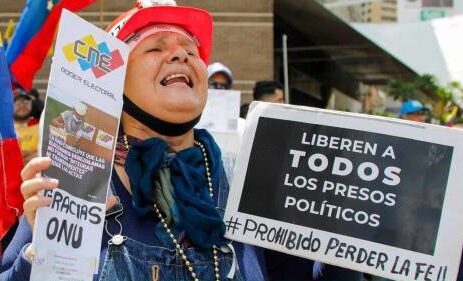BTN News: Amid growing tensions and international scrutiny, members of Venezuela’s Supreme Court of Justice (TSJ), including its president, Caryslia Rodríguez, visited the National Electoral Council (CNE) on Sunday to examine the physical records of the recent presidential elections. This move is part of a broader effort to “validate” the results, which declared incumbent President Nicolás Maduro the victor—a conclusion that has been met with widespread skepticism both domestically and abroad.
The state-run television channel VTV reported that Rodríguez, along with fellow TSJ magistrates Inocencio Figueroa and Fanny Márquez, was accompanied by forensic experts and international observers in this process. Their goal is to verify that the physical records match the data received at the CNE’s national tallying centers. This step, requested by Maduro, is portrayed as a crucial part of “certifying” the election results, despite the ongoing controversy surrounding the legitimacy of the process.
This latest development comes in the face of calls from the Organization of American States (OAS), 22 countries, and the European Union (EU) for the CNE to release the electoral records and allow for an impartial review of the presidential election results. The international community has expressed significant concern over the transparency and fairness of the electoral process, urging the Venezuelan government to ensure that the true will of the people is accurately reflected.
Meanwhile, the opposition, united under the Democratic Unity Platform (PUD), organized demonstrations both within Venezuela and internationally on Saturday. They aim to defend what they claim is the “victory” of their candidate, Edmundo González Urrutia. According to the PUD, they have collected “83.5%” of the records through witnesses and poll workers, which they assert indicate González Urrutia as the rightful winner. However, the government has dismissed these documents as fraudulent.
Notably, González Urrutia has refused to participate in the TSJ’s judicial process, stating his belief that the court is biased in favor of the Maduro administration. His stance contrasts sharply with Maduro’s assertion that the TSJ is a robust and impartial institution.
This unfolding drama highlights the deep divisions and challenges facing Venezuela in the wake of an election that has only intensified the country’s political crisis. As both sides continue to assert their conflicting narratives, the international community watches closely, with concerns over the future of democracy in Venezuela growing more pronounced by the day.


